15 things you should never put in a washing machine
These things really shouldn’t go in your washing machine

The best washing machines can be used for all kinds of situations. Whether you’re dealing with muddy sportswear, or need to refresh your pillows, a washing machine can provide the answer. However, despite the versatility of this appliance, you should know that there are certain things that should never go in a washing machine, just like there are 10 things you should never put in the dryer.
If you throw caution to the wind, you could end up damaging these items, as well as the washing machine itself. In extreme situations, it may even warrant a full blown replacement. Loading the wrong items is one of the 7 ways you’re damaging your washing machine without knowing it. That’s why it’s essential that you take care when running your washing machine, and avoid the following 15 items at all costs. This will help your washing machine last longer, and will protect the items from potential damage too.
Here are 15 things you should never put in a washing machine. It's not all bad news though, here are 10 things you never knew you could wash in a washing machine.
Plus, these are 7 places to never use WD-40 — you’ll be surprised.
1. Anything covered with pet hair
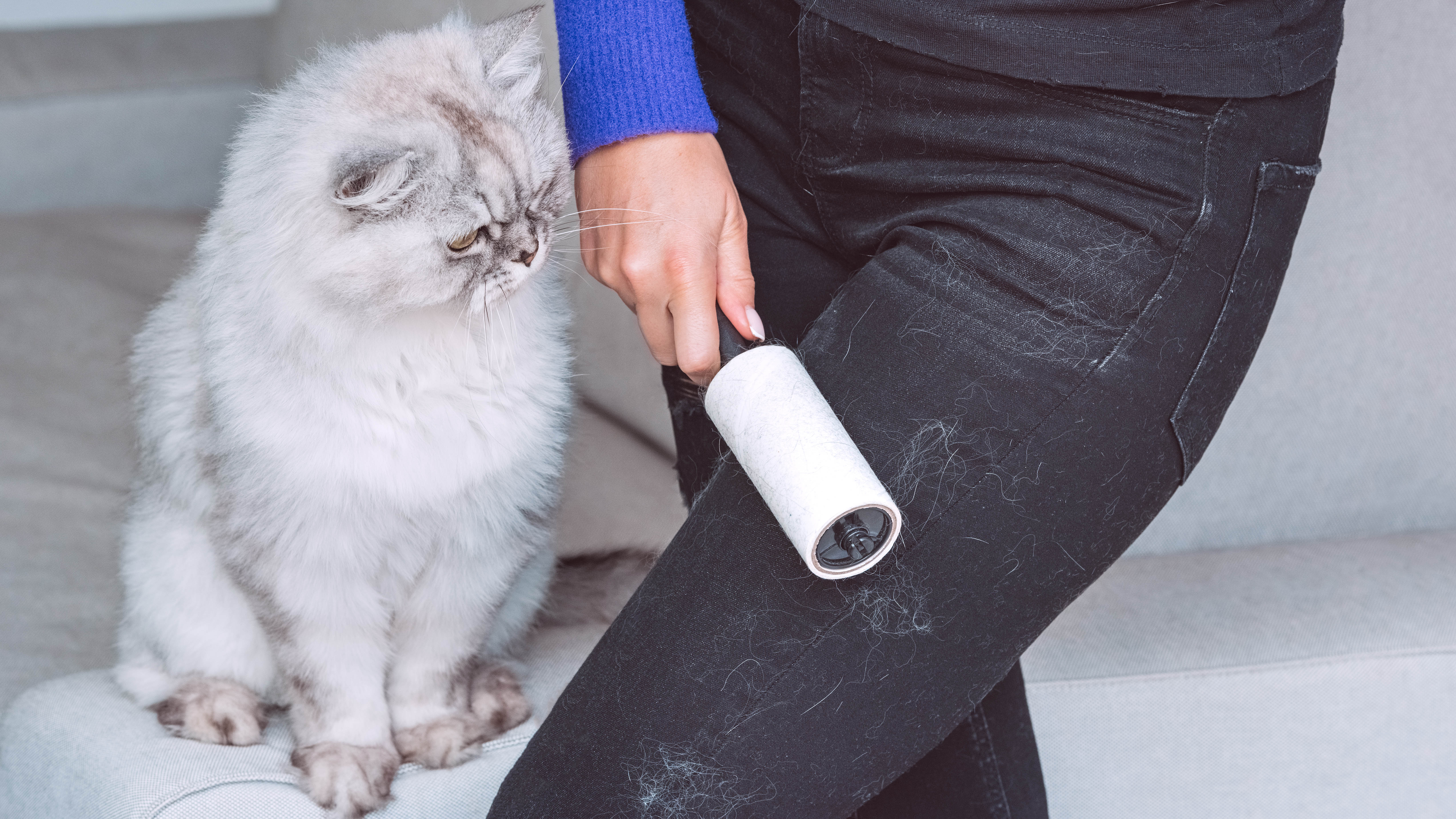
If you’ve got cats and dogs running around, you will no doubt be aware that the hair seems to get everywhere — particularly on your clothes. And while it can be all too tempting to just chuck your fur-filled items into the drum, you really shouldn’t.
Even if it comes off in the wash, all that shedding doesn’t just magically disappear. It will have been transferred to your machine, either sticking to the walls until it leaves on other items or clogging up the drain. In either case, it’s not ideal.
Remove any excess fur from your clothes before throwing them in the washing machine. A quick brush with a lint roller such as the Lint Rollers for Pet Hair ($11, Amazon) can work wonders.
Get instant access to breaking news, the hottest reviews, great deals and helpful tips.
2. Memory foam pillows
Most synthetic, cotton and even down pillows can go in the washer, (see our guide on how to wash a pillow for more info on this), but memory foam generally can’t. The foam is too delicate and can be torn easily by the process. Even if you opt for no spin, you’ll just end up with a heavy, wet mess, so avoid it.
The covers themselves can usually be machine-washed. But, clean the foam pillow using the upholstery attachment on your vacuum. If spot cleaning is required, you can also use a microfiber cloth and some mild dish detergent solution, followed by rinsing with a damp cloth. It’s worth checking the care label before you do this though. In rare cases, certain shredded foam pillows can go in the washer.
3. Loose bras
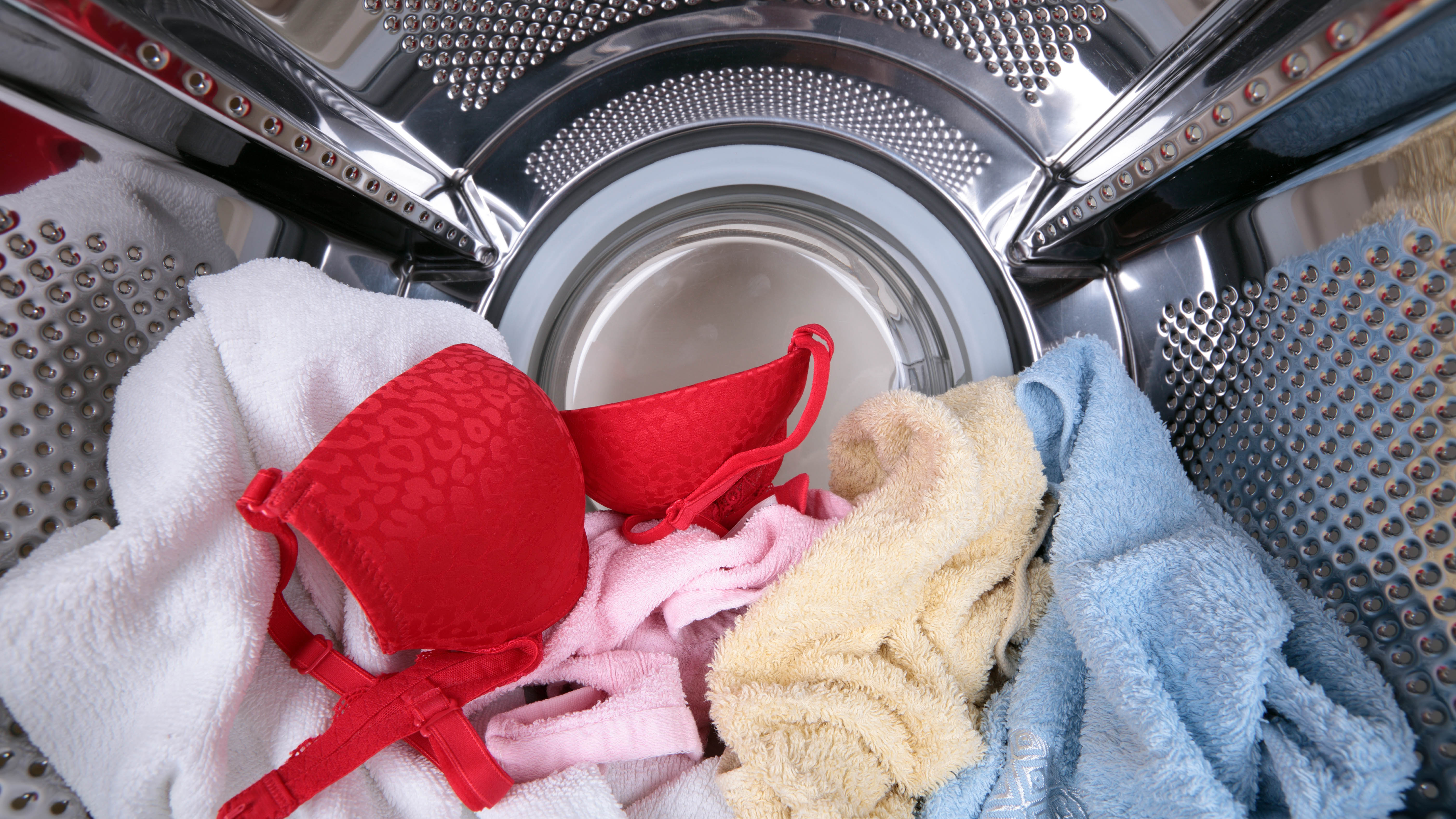
Loose bras are another article of clothing to avoid in your washing machine. This is because the wash can ruin the shape of the bra as well as damage it’s underwire. On top of that, the metal clasps can easily snag and tear other items in the load during the cycle.
We recommend using a laundry bag, such as the Polecasa Mesh Laundry Bags ($8, Amazon), when you wash your bras in the washing machine. Or stick to hand washing if you want to play it safe. See our guide on how to wash bras for full guidance.
4. Open zippers
If you run your finger along an open zipper, you will notice each of the teeth catching your skin as you do — the effect will be much the same in a washing machine. If your zippers are unzipped during a wash cycle, they can catch and damage other items — especially anything delicate — and scratch the inside of the drum too.
Zip up your zippers to the top to avoid this mistake, however you should leave any buttons unbuttoned. This will put less pressure on the thread during the wash cycle, so you won’t be googling how to sew on a button so often.
5. Swimwear

While the care label may say your swimsuit is machine washable, you’re better off washing it by hand if you want it to last. The material will stretch and sag when subjected to a washing cycle, meaning it will lose its shape over time.
Whether the material is made from nylon or spandex, it can easily catch on other items in the load as well, such as zippers or clasps. So to avoid damage and disappointment, wash gently by hand instead.
6. Flammable stains
We all know washing machines are designed to remove everyday stains, but anything coated in a flammable residue should never go in there. This includes stains such as cooking oil, gasoline, alcohol, motor oil, or anything which could catch fire. You don’t want these fluids in your washing machine because they’re a fire hazard — and the same can definitely be said for your clothes dryer.
Instead, pre-soak the garment and spot treat the stain with a solvent-based stain remover, such as Miss Mouth's HATE STAINS CO Stain Remover for Clothes ($14, Amazon). Then wash by hand in hot water. Always hang dry afterwards.
7. Embellished items or lace
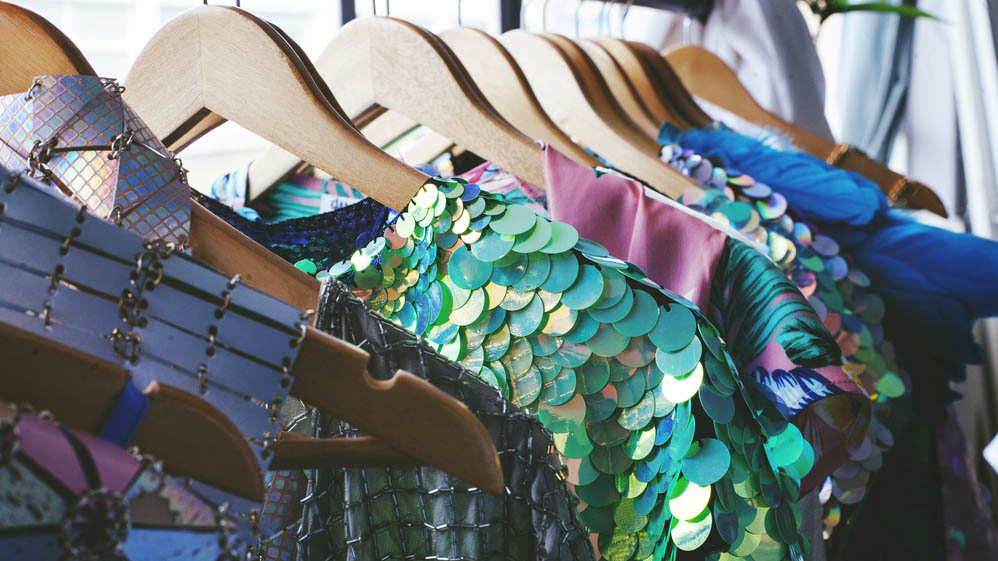
If it’s covered in sequins, odds are it’s going to be damaged in the washing machine. Even if you turn the item inside out, there are countless threads which can be pulled or caught during the cycle. If the embellishments are glued on, that won’t help either as the high temperature can melt the adhesive.
Anything with lace or embroidery shouldn’t go in there either for the same reason. Lace is very delicate and can be easily torn on contact with other items. Follow the care label for these garments and take to a dry cleaner if necessary.
8. Single, heavy items
If you throw a single pillow or a weighted blanket into your washing machine, you might encounter some problems when it comes to the spin cycle. If the load isn’t evenly balanced, your washing machine will struggle to pick up the speed to start spinning. In fact, it could quite possibly damage itself by throwing the weight of the single item across the drum as it tries.
As a result, your washing machine will either make a huge ruckus and start vibrating and shaking as it forcefully picks up speed. Or, it will cut out the cycle and leave you with a soaked, heavy mess. To avoid this problem, make sure you fill the drum up and even out the load. It could be as simple as throwing a few extra towels in there.
9. Delicate sweaters
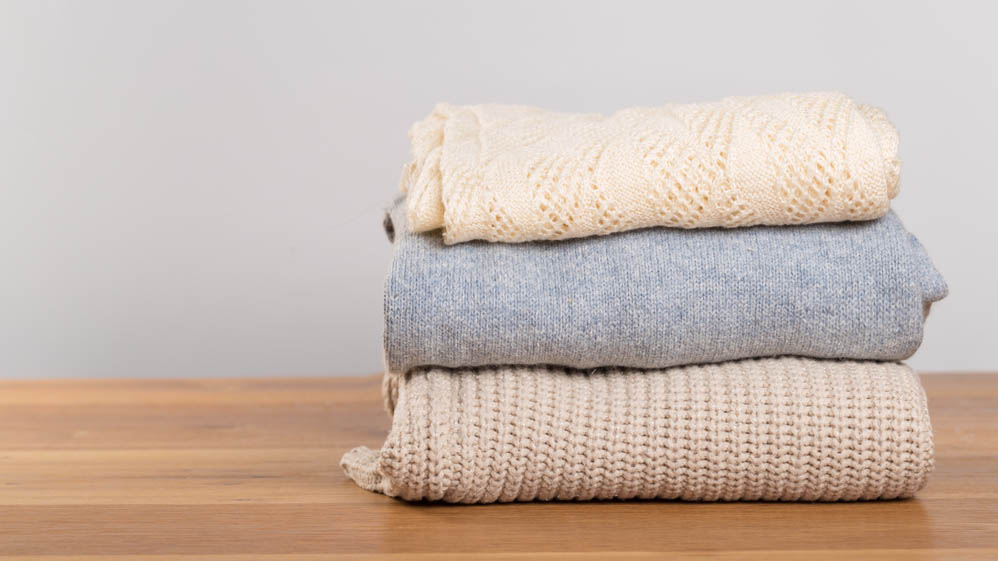
This is likely the most common mistake on this list. If the item is made from wool, cashmere or velvet, always check the care label for guidance on how to wash it. The high temperatures of a washing machine can shrink the material and the friction as it comes into contact with other items can leave it looking worn.
Wash by hand using a gentle laundry detergent, or take to the dry cleaners if necessary. Even if the care label states the item is machine-washable, we still recommend using a laundry bag to protect it during the cycle and to help the garment last longer.
10. Ties
A necktie is something we don’t often clean, but with everyday use, or the occasional spill, it will need to be washed eventually. The problem is, neckties are often made from silk or wool and they can feature delicate stitching. That means, if you put them through a wash cycle, they can be shrunk, damaged or misshapen.
Stick to hand washing to keep your ties looking sharp or take them to the dry cleaners. You can use a dedicated spot cleaner to remove any stubborn stains as well.
11. Suits

It seems apt to follow ties with suits — these definitely shouldn’t go in the washing machine. Most are made from delicate fabrics which can be easily damaged in a washing cycle.
Even if you’re dealing with a cotton or polyester suit, these will still contain interfacing, which is what gives them their shape. Interfacing can dissolve and bend out of shape when subjected to water, so keep your suits out of the washer and stick to the dry cleaners instead.
12. Purses
If your purse has seen better days, it can be quite tempting to throw it in the washer and hope for the best, but you must resist. Most purses are made from delicate materials, such as leather, which should never go in a washing machine. Any embellishments on the outside can be easily torn or melted away as well.
Ignoring all that, the tossing and tumbling in a washing machine won't do the shape of your purse any good either. So just keep the two separate. You should wash by hand and spot treat any specific stains. Depending on the material, you might be best off just wiping it over with a damp microfiber cloth.
13. Miscellaneous items
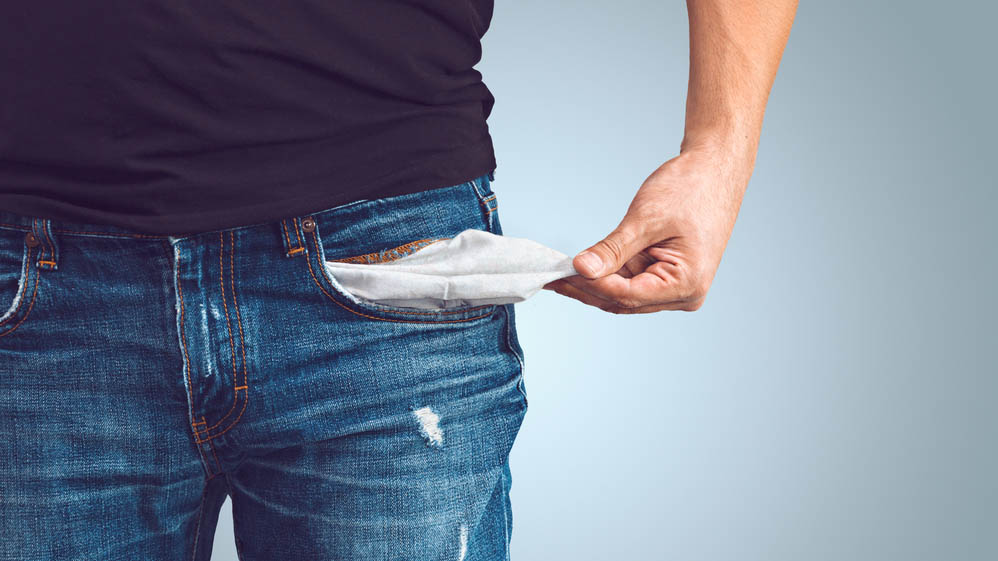
Always empty out any pockets before throwing the item in the washing machine. Jeans and jackets in particular can often hold pens, keys and coins, which will make a lot of noise once they’re loose.
These can cause damage to your machine’s walls as well as to the front panel if you’ve got a front load design. In the worst case scenario, they can get wedged in the drain pipe or damage the outer tank, leading to expensive repairs. Always check for loose items before loading your clothes and if you hear something unexpected in the machine, stop the cycle immediately.
14. Too much detergent
This might not seem so extreme compared to other mistakes on this list, but it’s still important. Using too much detergent can cause an excess of suds, which will be difficult for your machine to remove when it comes to the rinse cycle.
As a result, your clothes will contain residual detergent which can lead to skin reactions, or at the very least, crunchy and uncomfortable clothing. You’re wasting money using additional detergent as well, so make sure you dose correctly.
If you're new to washing machines, here’s what those compartments actually do in your washing machine drawer.
15. Anything with dry clean only on the label

Above all, you should always refer to the care label for guidance on how to wash the item. If it says ‘dry clean only’, that means it definitely shouldn’t go in the washing machine. This advice will have been given for a reason and by machine-washing the article, there’s a real risk of damaging it.
However, if it says ‘hand wash only’, you may still be able to rely on your washing machine — but care must be taken. See can 'hand wash only' clothes go in the washing machine for more info.
For more washing tips, tricks, and how-tos, check out our guides on the best washing machines, when you should and shouldn't use the quick wash setting and 10 things you should never put in the dryer. You can also check out our guide to the 14 foods that you should never put in the freezer.

Katie Mortram used to be a Homes Editor for Tom's Guide, where she oversaw everything from kitchen appliances to gardening tools, as well as smart home tech. Specializing in providing expert advice for cleaning and home manintenance, she now works as Household Advice Editor for Good Housekeeping.
